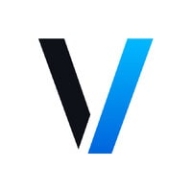

Veracode and FOSSA both compete in the software security category, providing solutions for different user needs. Veracode has an advantage in comprehensive security solutions, while FOSSA shines in open-source license compliance and dependency management.
Features: Veracode offers static, dynamic, and software composition analysis across multiple languages, providing vulnerability management tools for developers. Its integration into the software development lifecycle enhances security. FOSSA specializes in seamless integration with development environments, focusing on license compliance and policy management. It supports diverse build environments for efficient open-source management.
Room for Improvement: Veracode users are concerned about stability, speed, and false positives, needing better application integration and improved reporting. FOSSA users seek better security scanning for vulnerabilities across components and more detailed reporting.
Ease of Deployment and Customer Service: Veracode supports deployment across public, private, and hybrid clouds, with responsive but sometimes slow customer service. FOSSA offers easy deployment on public and on-premises environments, with reliable and efficient customer service.
Pricing and ROI: Veracode's pricing is high but justified by its extensive security features, with potential long-term savings from reduced incidents. FOSSA offers competitive pricing with flexible options, providing significant value in developer time saved and legal compliance, catering to different organizational needs and budgets.
| Product | Market Share (%) |
|---|---|
| Veracode | 9.1% |
| FOSSA | 3.2% |
| Other | 87.7% |


| Company Size | Count |
|---|---|
| Small Business | 5 |
| Midsize Enterprise | 1 |
| Large Enterprise | 8 |
| Company Size | Count |
|---|---|
| Small Business | 68 |
| Midsize Enterprise | 43 |
| Large Enterprise | 112 |
Veracode is a leading provider of application security solutions, offering tools to identify, mitigate, and prevent vulnerabilities across the software development lifecycle. Its cloud-based platform integrates security into DevOps workflows, helping organizations ensure that their code remains secure and compliant with industry standards.
Veracode supports multiple application security testing types, including static analysis (SAST), dynamic analysis (DAST), software composition analysis (SCA), and manual penetration testing. These tools are designed to help developers detect vulnerabilities early in development while maintaining speed in deployment. Veracode also emphasizes scalability, offering features for enterprises that manage a large number of applications across different teams. Its robust reporting and analytics capabilities allow organizations to continuously monitor their security posture and track progress toward remediation.
What are the key features of Veracode?
What benefits should users consider in Veracode reviews?
Veracode is widely adopted in industries like finance, healthcare, and government, where compliance and security are critical. It helps these organizations maintain strict security standards while enabling rapid development through its integration with Agile and DevOps methodologies.
Veracode helps businesses secure their applications efficiently, ensuring they can deliver safe and compliant software at scale.
We monitor all Software Composition Analysis (SCA) reviews to prevent fraudulent reviews and keep review quality high. We do not post reviews by company employees or direct competitors. We validate each review for authenticity via cross-reference with LinkedIn, and personal follow-up with the reviewer when necessary.